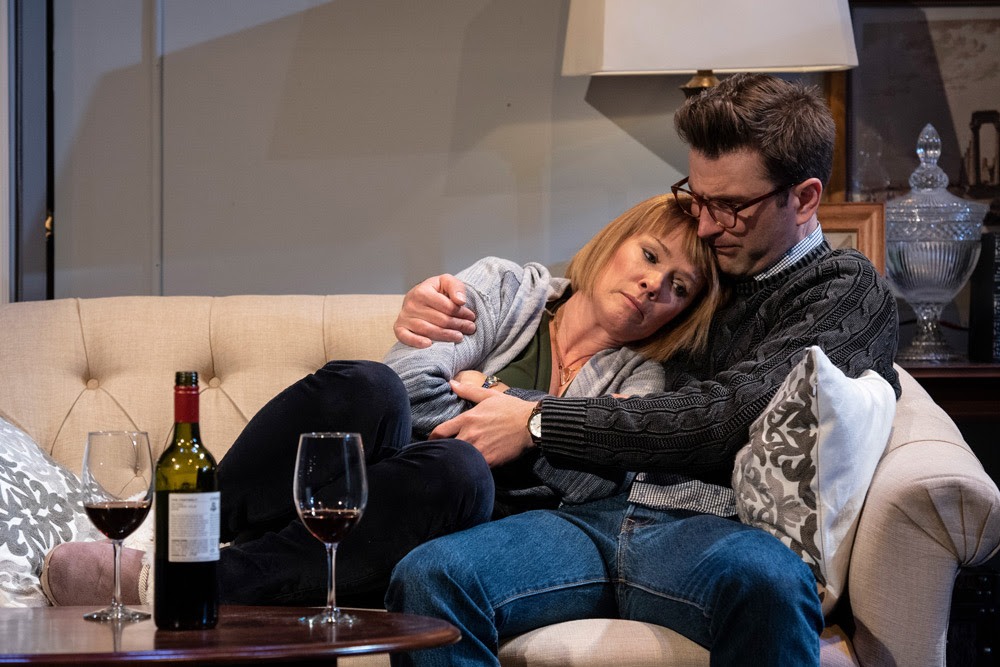
As much as we may try to control our own lives, they’re fairly easy to disrupt. There are so many moving parts—family, kids, money, friends—that one change can throw off the whole system.
That uneasiness, the strange sensation of a life thrown out of balance despite your best efforts, is at the heart of Everyman Theatre’s latest production, Dinner with Friends, which runs through April 7.
You may have seen the TV movie starring Dennis Quaid and Andie MacDowell back in the day, but it’s worth seeing Donald Marguiles’ Pulitzer Prize-winning drama on the stage. Resident company members Megan Anderson, Danny Gavigan, and Beth Hylton, joined by Baltimore newcomer M. Scott McLean, give life to this all-too-relatable tale of love won, lost, and changed, which plays out against a (literally) rotating array of HGTV-worthy set pieces and a nostalgia-inducing soundtrack.
Smart writing and a healthy dose of humor lighten this contemplation of the nature of lifelong (or maybe just temporary) relationships, saving it from what could have been too many spousal squabbles for anyone’s liking. It has its poignant moments, its “awws” and tender realities that remind us that, yes, relationships aren’t always perfect, but they’re often wonderful despite it all. But the knowing chuckles and groans from audience members as transgressions are explained and excuses are given made it clear just how familiar these two couples are to everyone.
We’ve all met them before. One couple (Anderson and Gavigan) falls apart, while the other (Hylton and McLean) seems to be perfectly in sync. But even they, despite their enviable jobs and outwardly perfect relationship, can’t claim a life without uncertainty. And as they cling to one another, they also begin to wonder just what their friends’ new lives mean for their own pasts and futures.
All four cast members have mastered the timing of this sometimes biting, yet often tender, piece and both acts seem to fly by without feeling incomplete. Hylton and McLean as Karen and Gabe, whose relationship has the benefit of restoring some faith to those jaded by the failure of their friends’, are lovely together, and the sincerity with which they jab at, question, and ultimately cherish one another is enough to convince even the most ahem cynical of us that the hard work and low points of relationships might just be worth the joy of the highs.
Their conversations with Gavigan’s and Anderson’s Tom and Beth over meals and flashes of vacations gone by act more like vignettes, quick windows into decades of friendship, than they do a straight narrative. They’re brief, and there are moments when the timeline is uncertain, but the result feels right for the story being told. After all, that’s how we experience each other’s lives—in stories told while wine is poured, during long weekends away, and over dinners with friends.
